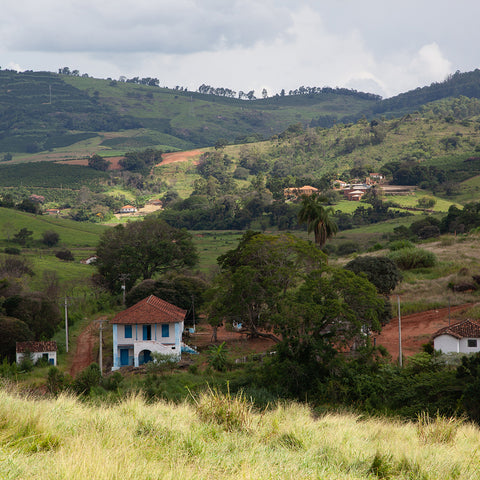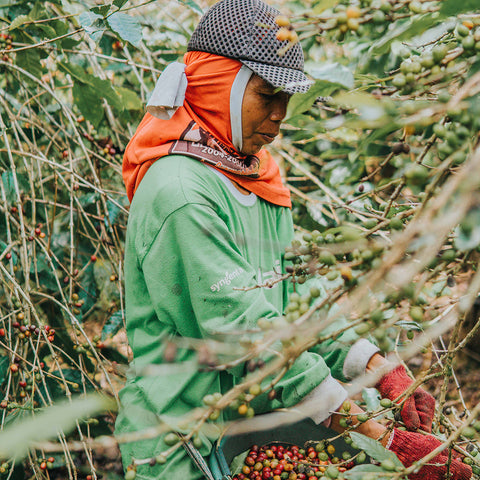The term ‘sustainability’ is often understood in the context of the environment. But really, it’s about practices that can be sustained in the long run - whether that is the use of resources by a business or a customer adopting certain products for decades of their life.
Sustainability is what makes this possible.
Granted that this term has been gaining traction in the past few years as more and more businesses realise the impact of their operations, there’s always room for more sustainable development.
But before we look at what sustainability truly means in the coffee industry, you’re probably wondering why you, as the end consumer, should care about all this.
To put it simply, change can only be exercised when it is widely accepted.
If brands that are striving towards a sustainable coffee economy don’t get attention and appreciation, they are far more unlikely to survive in the industry. This is but one example of why you should value sustainable practices.
As we delve more into the topic, you’ll have greater insight.
Forms of Sustainability
Sustainability in the coffee industry can take various forms - social, environmental, and economic sustainability.

Within each of these categories, the implications also differ at different levels of the chain, i.e. what environmental sustainability means for a customer versus for a company, and so on.
Economic Sustainability
To start with, let’s take economic sustainability. It refers to the financial aspect of the coffee trade.
For good quality coffee to exist, coffee farmers need to be able to make more than just their ends meet. If they are struggling to get enough income for their livelihood, they wouldn’t be able to invest more into improving their craft.
Secondly, when there are price fluctuations in the market, it affects how coffee roasters are able to purchase a sufficient supply of coffee to meet the demand of their customers. This can impact margins for everyone involved in the coffee supply chain, adding more pressure.
Social Sustainability
Social sustainability is about the people involved in the coffee industry.

Their standard of living, inequalities among social groups, and opportunities for growth are some factors that indicate social sustainability.
For instance, fair trade certifications strive to improve social sustainability by establishing standards that empower coffee farmers, allowing them to be paid a higher premium for their coffees than they normally would.
In various coffee-producing countries, there are organisations that support the coffee trade, providing technical resources, access to global platforms for selling their crop, organising welfare programs that promote improved quality of life for families of coffee producers, etc.
All these are crucial for enhancing social sustainability.
Environmental Sustainability
Environmental sustainability is the one that’s most discussed. It relates to how the coffee trade impacts the planet.
Ensuring agricultural practices don’t harm the land and the wildlife, coffee processing is done with minimal waste and efficient use of resources such as water, fuel, and electricity are ways in which coffee producers can ensure environmental sustainability.
The goal is to work towards a system that allows for greater value in terms of coffee quality while being socially, economically, and environmentally sustainable.

Ultimately, all three aspects work in tandem, each having consequences on the other. The only way to achieve a balance in sustainability is to spot gaps and implement solutions at the earliest.
What Can You Do?
-
For starters, educate yourself. Know that your choices have far-reaching consequences. Read up about the origin of the coffee you are choosing and how it is produced.
Ideally, there should be great transparency in the information communicated to you so you can make an informed decision. In case you can’t find the necessary information, feel free to engage with the business and clarify your doubts.
It may seem like a lot of effort, but that’s the cost of reaping the benefits of good choices.
- When you find coffee brands that incorporate sustainability measures, spread the word. Tell your friends and family about the positives of supporting such businesses.
- Think about how best you can brew the coffee. What coffee filter would be the most sustainable choice? How to recycle the package or reuse the coffee grounds?
- Support your local coffee industry in any which way possible. Petition for improved efforts towards coffee tourism in your country.
These are just a few ways in which you can do your part to ensure the coffee industry continues its sustainable endeavours
Sustainability is not just a tag that can be added to product packaging or a brand’s website. It has to be an approach that goes hand in hand with how an industry functions.
After all, each and every one of us has a collective impact on society.

Leave a comment: